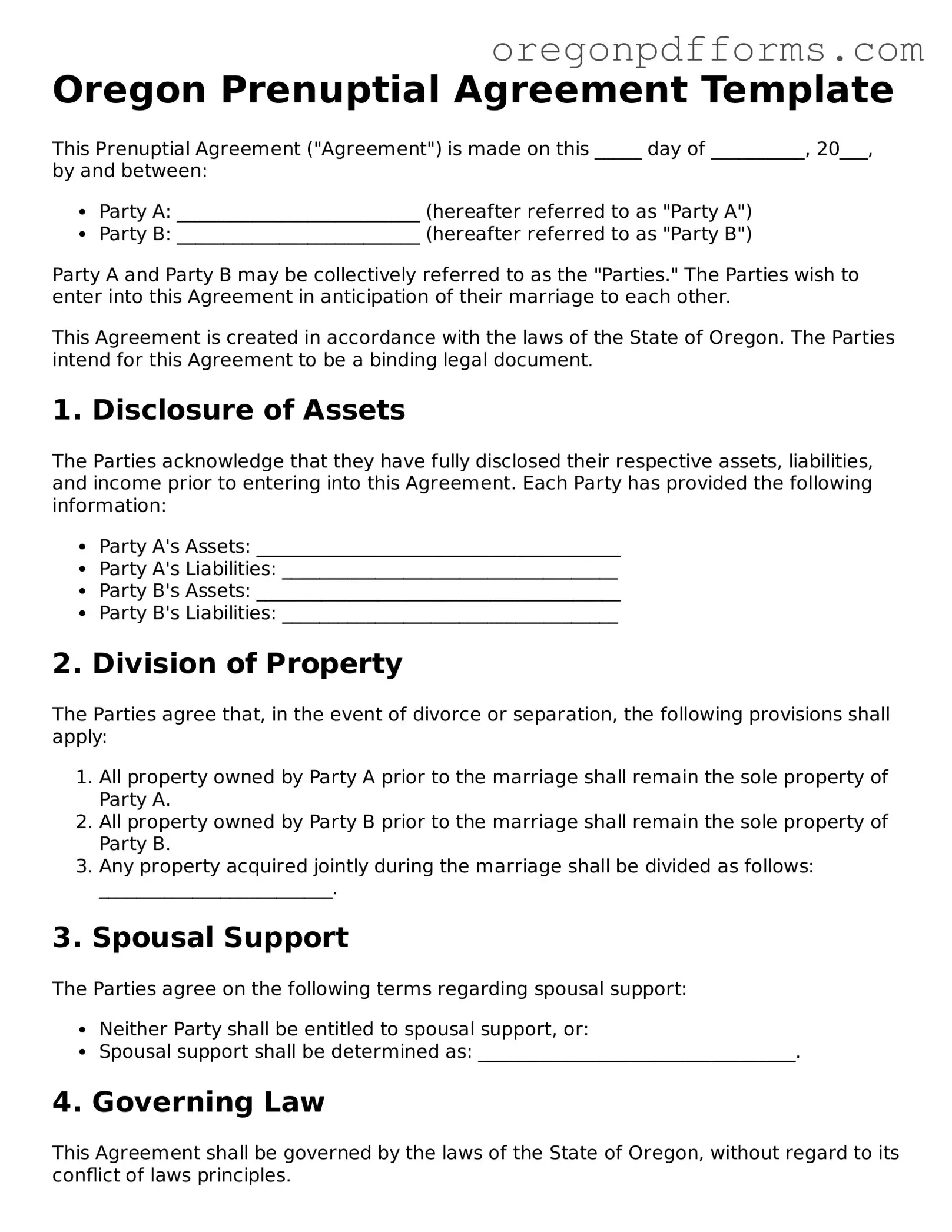Valid Prenuptial Agreement Document for Oregon
A prenuptial agreement form in Oregon is a legal document that allows couples to outline the distribution of assets and responsibilities in the event of a divorce or separation. This agreement serves to protect individual interests and clarify financial matters before entering into marriage. Understanding the components and requirements of this form is essential for anyone considering marriage in the state.
Open My Prenuptial Agreement

Valid Prenuptial Agreement Document for Oregon
Open My Prenuptial Agreement

Open My Prenuptial Agreement
or
Get PDF
A few steps left to finish this form
Complete Prenuptial Agreement online with easy edits and saving.